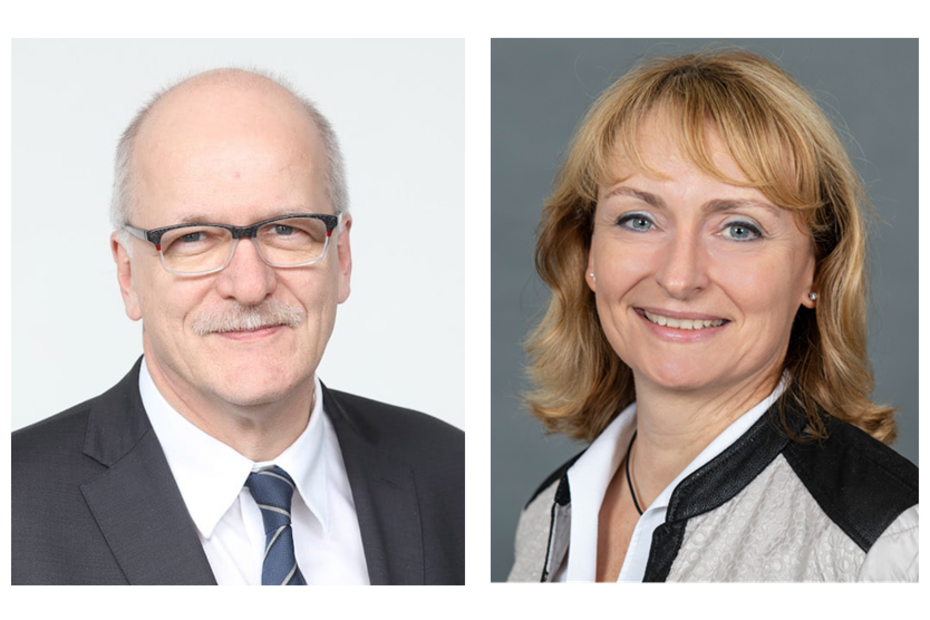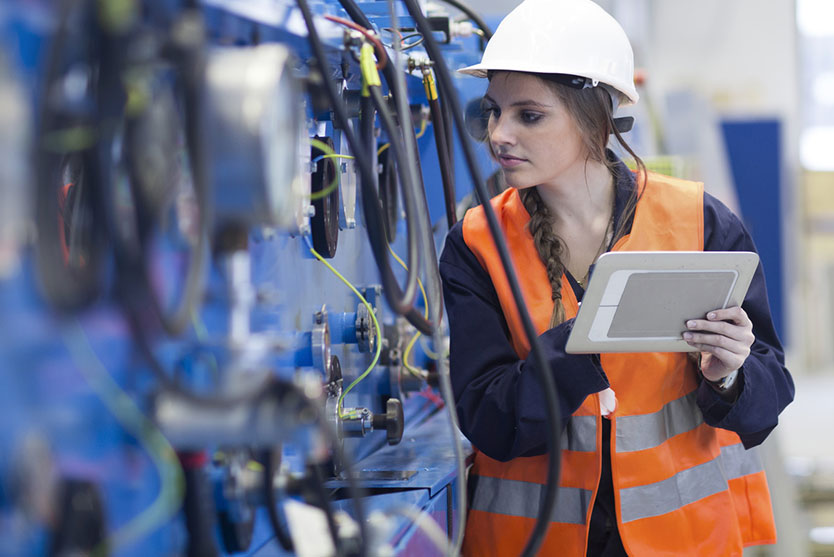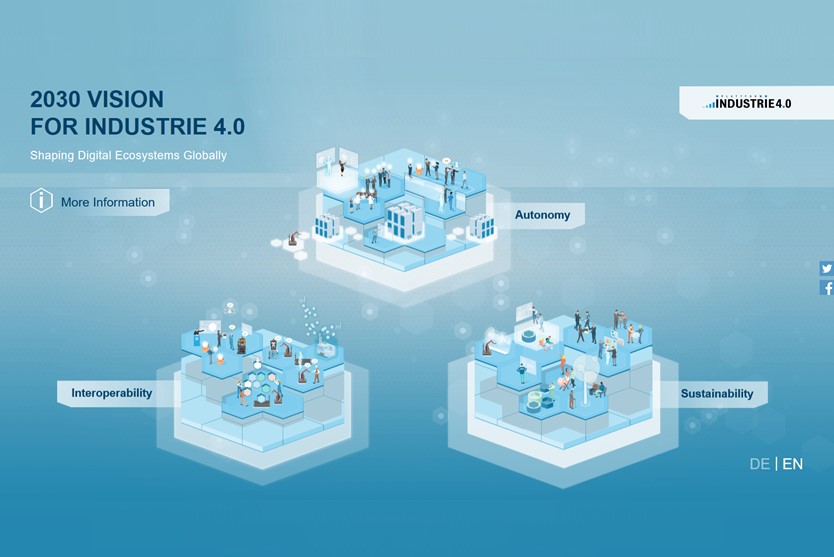
Thomas Hahn // Anja Simon
© Thomas Hahn: Siemens AG / Anja Simon: Siemens AG
Industrie 4.0 is on the rise worldwide. Platform Industrie 4.0 is part of this development. We are receiving more and more international inquiries. For years, a constant dialogue with international cooperation partners has created space for a new understanding. Important topics are applied standards and technologies or open digital ecosystems. In an international exchange, we develop recommendations and concepts that can be connected to global networked value creation.
Against this backdrop we interview two members of Platform Industrie 4.0. Thomas Hahn, member of the steering committee of the platform and Chief Expert Software at Siemens, is active for the platform in many international cooperations. Anja Simon is Chief Technology Officer at LNI4.0. They report on their international experiences, take a look into the future and give us their answers.
Platform Industrie 4.0 has succesfuly build an international network. Where are we today, Mr. Hahn, and what issues will we be dealing with in the next two years?
The credo in the Platform Industrie 4.0 is: Industrial value creation is globally networked. Digital solutions must be connectable across national borders, in Europe and globally. To do this, we have to constantly engage in international dialogue. Be it for the exchange of knowledge or with regard to the requirements for products and solutions, be it in pre-competitive research or practical testing. And most importantly, standardization!
We now have many important partners on board and are in regular contact with four continents: Europe, North and South America and Asia-Pacific. Overall, we are constantly expanding the international pillar.
In the next few years, we will also be dealing with various new aspects. In many cooperations we have created a basic understanding of technologies and applications such as the administration shell. Now we want to get more specific about the joint implementation. We will deal more intensively with new topics and concepts, such as those we discuss in the context of Industrie 4.0 data spaces or in the area of sustainability and resilience of value chains.
Ms. Simon, the LNI 4.0 supports companies of all sizes to implement Industry 4.0 applications in pilot projects and to test future solutions. The network is experiencing strong demand from the international cooperation of the platform. What exactly does the cooperation look like in an international context, and what are your priorities with international partners?
Yes, the international demand for cooperation has increased noticeably in recent months. Industrie 4.0 has become very important internationally. Basically, I experience that similar topics related to Industrie 4.0 are being worked on in all countries. This is a good basis for cooperation and synergy effects.
From the perspective of LNI 4.0, international cooperation is primarily about developing procedures and options for the implementation of Industrie 4.0 technologies, e.g., for the administration shell or edge management. Furthermore, tangible empirical values for example implementations are exchanged or concrete, joint demonstrators are set up or networked.
All international cooperations strongly involve standardization activities and are neutral and open.
Interoperability also means the global networking of machines and Industrie 4.0 applications. What success stories are there already? Where do you still see major challenges?
Interoperability represents the technological basis for all other, especially digital applications and business models. It is, so to speak, the highway for the worldwide networking of machines and Industrie 4.0 applications. Interoperability is receiving a major boost, particularly in the area of sustainability and the circular economy. A truly sustainable use of resources can only be implemented with global interoperability and secure data management.
However, interoperability does not only include the pure connection between the machines. The growing availability and performance of the networks, a stronger interlocking of IT and OT, an increasing need for data, and the proactive integration of all resources, including people, are essential.
This requires a new awareness. We have to tackle this in order to remain the key player in Industrie 4.0.



